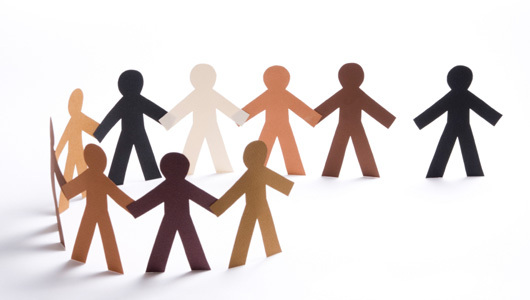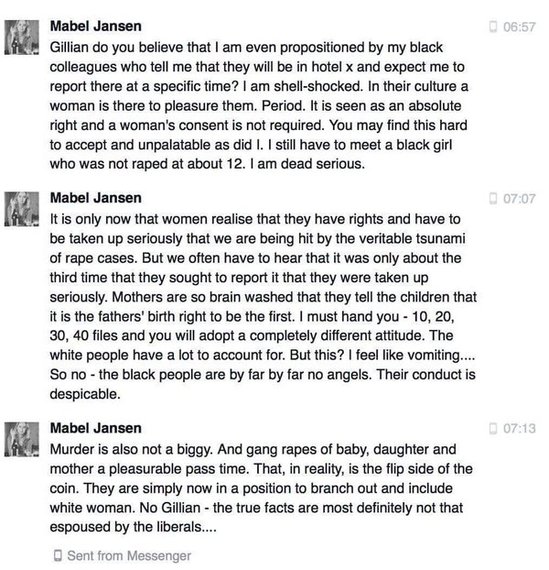"The first thing we do, let's kill all the lawyers," said the murderous Dick the Butcher in Shakespeare's Henry VI.
He was glibly (one assumes with his tongue firmly in cheek) suggesting that for autocracy, unaccountability and prejudice to thrive, society must be without lawyers. The implication being that it is lawyers (and thus judges) who serve to balance out society through justice. By obvious extension, the suggestion then is that the justice system through those called to judge provides sanity to an insane world.
Of course, imaginary Dick the Butcher didn't know of the late American supreme court Justice Antonin Scalia, nor of shamed (one hopes) South African high court judge Mabel Jansen and the many other judges whose prejudices come to the fore. These prejudices, one can reasonably assume, can and do cloud these judges' judgment - supposing such judgment ever existed. One imagines his criminal mind thought of judges only as fair arbiters whose role was to promote equitable and objective justice and quell excesses. For him, then, judges stood in the way of him committing crimes and getting away with it. This is indeed what society today (centuries after William - or Anne Hathaway likely - conjured up Dick the Butcher) expects of judges.
In an ideal world, judges do not subscribe to Cesare Lombroso's racialised typology of a criminal. Instead, they must apply their minds to each case without fear, favour or prejudice. They do this to bring to account the right people. They do not assume an accused's guilt on the basis of their skin colour. Indeed, justice ought to be blind to colour - moreso in a country where colour has been systematically used as a tool of oppression. An accused should be judged on their criminal actions. It is those criminal actions that ought to lead a judge to convict - not their race. Certainly not the judge's prejudicial views of the accused's race.
In an ideal world, judges are thus the vehicles through which a society can transform from arbitrarily judging people based on their colour to judging (if you must) on the basis of their conduct. In order for them to be this and achieve that, they too must be transformed. As South African judge Cynthia Pretorius pointed out in 2014, this transformation is not just surface level, it must include transformation of the mindset of judges. For her, "[judges] must not only be fit and proper, but must [they] be emotionally mature and have empathy." Significantly, she cautioned against judges allowing their minds to be clouded by societal stereotypes - may of which are hangups of the racialized and racist past.
Judge Pretorius could very well have been speaking of her colleague, Mabel Jansen, who now finds herself on special leave pending an inquiry into her fitness to remain in office by the South African Judicial Services Commission. Jansen dived headfirst into hot soup when she aired racist views about South African black people and violent crime.
Jansen's now infamous publicly-stated racist views are summarised quite easily as equating blackness to violence, barbarism and buffoonery. In her replies to comments on Facebook, she states that those black people who do not rape and/or murder are themselves complicit either by inaction or by supporting this "black culture" of violence.
Throwing around unsubstantiated statistics - likely riding on her weight as an educated legal mind - she buttresses her racialised views of black people and is quick to insult anyone who disagrees. She later sent social activist Gillian Schutte direct messages justifying her position and dug herself deeper into the doldrums of racism where she comfortably remained for close to a year before Gillian decided to publically expose her. Schutte had in 2015 sought to get Jansen investigated (and perhaps also removed from the bench) for her racist remarks.
Jansen, of course, does not regard herself a racist because she "raised two black orphans before it became fashionable to do so"...
Her mindset is not unique to her. Far from. However, given that she holds an office in which objectivity and lack of bias are central to her effectively discharging her duties for the benefit of the population (which, dare I add, is mostly black) her mindset is dangerous. It is dangerous because it puts to question whether or not it wasn't her good judgment, but her bias that motivated her to rule against black people in her courtroom. It is dangerous because it poisons the minds of the many who trust and believe that judges are indeed arbiters of justice. It is dangerous because, as society relies on the judiciary to promote much-needed transformation, her views suggest that some amongst them are in fact regressive in their thinking.
Most of all, it is dangerous because she would have an unlikely supporter in Dick the Butcher. He, of course, was not black.
Originally posted on Law | Life | Leanings


